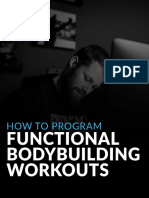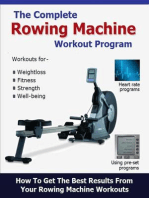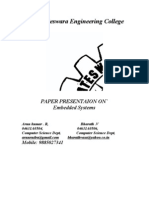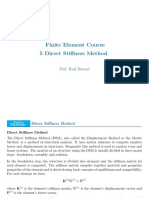0 ratings0% found this document useful (0 votes)
42 viewsÁrticulo Revista AOTA
Árticulo Revista AOTA
Uploaded by
Vanesarevista AOTA
Copyright:
© All Rights Reserved
Available Formats
Download as PDF, TXT or read online from Scribd
Árticulo Revista AOTA
Árticulo Revista AOTA
Uploaded by
Vanesa0 ratings0% found this document useful (0 votes)
42 views1 pagerevista AOTA
Original Title
Árticulo revista AOTA
Copyright
© © All Rights Reserved
Available Formats
PDF, TXT or read online from Scribd
Share this document
Did you find this document useful?
Is this content inappropriate?
revista AOTA
Copyright:
© All Rights Reserved
Available Formats
Download as PDF, TXT or read online from Scribd
Download as pdf or txt
0 ratings0% found this document useful (0 votes)
42 views1 pageÁrticulo Revista AOTA
Árticulo Revista AOTA
Uploaded by
Vanesarevista AOTA
Copyright:
© All Rights Reserved
Available Formats
Download as PDF, TXT or read online from Scribd
Download as pdf or txt
You are on page 1of 1
SOFTWARE
& TECHNOLOGY REVIEWS
Exercise Break
the user to create text and pictorial
activities presented appear to enhance
Hopkins Technology, 421 Hazel Lane,
modules that can be added to the cur-
neuromuscular activities such as range
rent offerings. The keyboard can be
used to access this program; however,
the use of a mouse or other tracking input device would be helpful. A button
to delay the bre<lk time by 5 min has
been included. Additionally, this program contains several ergonomics
checklists for the monitor, chair, keyboard, work area, and posture, along
with a section on how to set up a work
station using ergometrics. The different
stretches during each protocol can either be changed manuall)' one at a time
or autOmatically b)T having the computer
go on to the next exercise once the timer is finished with the countuown.
One dimculty discovered was the
repetition of the four welcome screens
every time the program starts. This
screen is useful as an introduction because it contains warnings and pl'ecautions (e.g., do not bounce during the
stretches, consult your phySician if you
have pre-existing conditions, do not use
Exercise Break if )'OU have carpal tunnel
syndrome). Fortunately, in the current
version the welcome screens can be fast
forwarded. For those Windows users
who also have a screen saver that is set
on a timer, there may be some minor
incompatibility problems.
Efficacy studies conceming the ocCup<ltional therapy applications of Exercise Break are needed. The Jacobson relaxation techniques, which are similar to
the ones being presented in this software, appear to have beneficial effects
on the wellness of persons. This software provides an excellent solitarv activity that should help address the balance
issue between work or job performance
in relation to brief leisure activity. The
of motion, muscle tone in groups of
muscles (both for enhancing and reducing tone), and endurance (due to the
timed aspect), as well as reinforcing
proper postural control. Perceptual
skills are addressed in the imitation of
positions such as with right-left discrimination anu position in space. Because Exercise Break is primarily a visual and pictorial program, the ability to
read words may not be necessary once
the program is set up for the user.
However, because of the timed aspects
of the program, the ability to read numbers seems necessary. Cognitively, the
user should have an attention span of at
least 4 min (the duration of the longest
exercise plus time for welcome
screens).
Hopkins NM 55343-7116, 800-397-9211
Available for DOS, Microsoft Windows, or the
Macintosh in English or Spanish One floppy
drive, color or monochrome monitor. and
minimum of 50K of RAM needed. Copyright
1992, 1993. System used lor review: IBM
compatible with MS Windows. Purchase
price: $29.95 per user, site licensing
available on request
,xerCise Break appears to be an ex-
cellent software program for those
who sit at a computer terminal for long
periods of time and seldom take breaks.
This program was designed by a team
of health care professionals to reduce
the tension caused by computer use
The primary source of the stretches is
Soraya Rodriguez, LPT. Exercise Break is
a Visually oriented package in which the
user is asked to replicate positions that
are pictured on the screen. By using the
sequence settings section, the user can
control which body pans are to be
stretched, as well as the time period between stretch breaks. For example, specifIc pans of the body can be stretched,
such as the face, neck, shoulders,
wrists, hands, back, and legs. In addition, sets of stretches are included for
rela-"(ation, a quick body stretch, and circulation. Should the user choose to perform all the stretches, the total time
combined is 18 min 59 sec initially, although individual exercise protocols
range from 20 sec for circulation to a
qUick full-body stretch at 3 min 59 sec.
Individual stretches have a countdo\Cvn
time for holding the stretch that can be
varied by the user' in the settings menu.
Portions of the stretches, such as performance of the shoulder roll exercises,
are animated. In addition to the preset
protocols, Exercise Break also allows
The American journal of Occupational Therapl'
Downloaded From: http://ajot.aota.org/ on 10/24/2015 Terms of Use: http://AOTA.org/terms
Exercise Break would be useful on
the job site as well as in a wellness program for employees. Clinically, certain
sequences of the program could be
lIsed to increase fleXibility and decrease
muscle tension, although this use would
need to be decided indiVidually or on a
c<lse-by-case basis. Exercise Break is a
visually oriented program that appears
to be user-friendly. This is one of those
programs that makes one think, "Why
didn't they do this before?" AMaria Clauson, 01'5
HOUSton, TX
Editor's Note. Guidelinesfor doing software
reviews can he ohtained from Lawrence W.
faulkner, MSe. OTR Assistant Professor, Department of Occupat ional Therapy, School
of Allied Health, Texas Tech University
Nea/lh Sciences Center, 3601 Fourth Street,
Lubbock, Texas 79430 Telephone.
806-743-3240 (work), 806-743-3249 (/ax).
W.e encourage your participation in this department.
1051
You might also like
- Built To Last DeFranco PDFDocument52 pagesBuilt To Last DeFranco PDFAyman Wanas100% (1)
- Program Functional Bodybuilding WorkoutsDocument14 pagesProgram Functional Bodybuilding WorkoutsChris Holden70% (10)
- 8-Week Barbell Medicine Strength Program: The BridgeDocument32 pages8-Week Barbell Medicine Strength Program: The BridgeDen Kong100% (1)
- Functional Shred ProgramDocument41 pagesFunctional Shred ProgramRebecca Rogers100% (4)
- BrainTwister A Collection of Cognitive Training TasksDocument43 pagesBrainTwister A Collection of Cognitive Training TasksCapoNeatNo ratings yet
- ESP32-WROOM-32U CE CertificationDocument6 pagesESP32-WROOM-32U CE CertificationAlexNo ratings yet
- Program Functional Bodybuilding WorkoutsDocument14 pagesProgram Functional Bodybuilding WorkoutsRohit Yadav50% (2)
- User Manual: Kettler Fitness Elyx 3 Elliptical CrosstrainerDocument18 pagesUser Manual: Kettler Fitness Elyx 3 Elliptical CrosstrainerRoxie HeidiNo ratings yet
- The Bamako InitiativeDocument4 pagesThe Bamako Initiativejohn mwangiNo ratings yet
- This Study Resource Was: Quiz 1 Solutions and ExplanationsDocument8 pagesThis Study Resource Was: Quiz 1 Solutions and Explanationshenry100% (1)
- Dataspeed Quick Guide To Running Carla SimulatorDocument26 pagesDataspeed Quick Guide To Running Carla SimulatorDebjit ChowdhuryNo ratings yet
- Ergonomic GuideDocument5 pagesErgonomic GuideJellane SeñoraNo ratings yet
- ESC 100 - Introduction To Exercise Science Health/Medical Technology: In-Class WorksheetDocument10 pagesESC 100 - Introduction To Exercise Science Health/Medical Technology: In-Class Worksheetapi-302053688No ratings yet
- Xformer Exe GBDocument12 pagesXformer Exe GBfelicita16No ratings yet
- A Graphical Model 4 Interval TrainingDocument7 pagesA Graphical Model 4 Interval TrainingFabrizio FioravantiNo ratings yet
- An Innovative System For Monitoring of Performance During Resistence Exercise Training Programs PDFDocument4 pagesAn Innovative System For Monitoring of Performance During Resistence Exercise Training Programs PDFLena KovacevicNo ratings yet
- Program Design ToolsDocument15 pagesProgram Design ToolsjakovvlakicNo ratings yet
- Real-Time Workout Posture Correction Using OpenCV and MediaPipe (2022)Document10 pagesReal-Time Workout Posture Correction Using OpenCV and MediaPipe (2022)sheik ahamedNo ratings yet
- Review Report 2016 Rupert WearableDocument14 pagesReview Report 2016 Rupert WearableindorgNo ratings yet
- NR 17 BBP Ergonomics Instructor Guide Parts1 4 - AppendicesDocument111 pagesNR 17 BBP Ergonomics Instructor Guide Parts1 4 - AppendicesCPSSTNo ratings yet
- SSRN Id4383182Document5 pagesSSRN Id4383182320126551001 BANKALIKITHANo ratings yet
- Ergo GuideDocument22 pagesErgo GuideAlina KganyagoNo ratings yet
- Module 1: Introduction To Operating System: Need For An OSDocument18 pagesModule 1: Introduction To Operating System: Need For An OSshikha2012No ratings yet
- Background and Rationale: Dela Pena - 1Document6 pagesBackground and Rationale: Dela Pena - 1Meloi ChuNo ratings yet
- CPU Scheduling in Operating SystemsDocument17 pagesCPU Scheduling in Operating SystemstechnicaljachNo ratings yet
- Icma2018 403Document6 pagesIcma2018 403RamaPtmNo ratings yet
- Body Posture Detection and Motion Tracking Using Al For Medical (2022)Document6 pagesBody Posture Detection and Motion Tracking Using Al For Medical (2022)sheik ahamedNo ratings yet
- CPU Scheduling in Operating SystemDocument13 pagesCPU Scheduling in Operating SystemdivyaNo ratings yet
- Advanced Circuit Training A Complete Guide To Progressive Planning and Instructing - Richard - Bob - Ho - 15Document3 pagesAdvanced Circuit Training A Complete Guide To Progressive Planning and Instructing - Richard - Bob - Ho - 15guypetro6No ratings yet
- Project and Testing PlansDocument3 pagesProject and Testing PlansDeclan PalmateerNo ratings yet
- CompexDocument17 pagesCompexSilvia RuizNo ratings yet
- Warm UpsDocument9 pagesWarm UpsCiprianTeleagaNo ratings yet
- Plano de Treino CrossfitDocument8 pagesPlano de Treino Crossfitmari_kundera19No ratings yet
- CHAPTER I - IntroductionDocument6 pagesCHAPTER I - IntroductionMeloi ChuNo ratings yet
- HAZOP, Safety, and Ergonomic StudiesDocument51 pagesHAZOP, Safety, and Ergonomic StudiesSeptian AnggoroNo ratings yet
- Design CPMDocument5 pagesDesign CPMNura Eky VNo ratings yet
- Ergonomics Module 2Document11 pagesErgonomics Module 2aimemonchNo ratings yet
- 1 s2.0 S1574119216302012 MainDocument15 pages1 s2.0 S1574119216302012 Mainjaqueline.fgontijooNo ratings yet
- Bacani FittDocument4 pagesBacani FittjomarvaldezconabacaniNo ratings yet
- OSY Board Questions With AnswersDocument51 pagesOSY Board Questions With AnswersHemil ShahNo ratings yet
- Biofeedback MonitorDocument7 pagesBiofeedback Monitorfriend717100% (1)
- Process Scheduling (First Part)Document6 pagesProcess Scheduling (First Part)Ln Amitav BiswasNo ratings yet
- 188 FullDocument7 pages188 FullAnjas Andy SaputraNo ratings yet
- Importance of e WPS OfficeDocument4 pagesImportance of e WPS OfficePaolo Pagara ColomboNo ratings yet
- ERGONOMICSDocument36 pagesERGONOMICSCholan PillaiNo ratings yet
- HNS L-5 Develop Computer Keyboard SkillDocument35 pagesHNS L-5 Develop Computer Keyboard SkillSirakNo ratings yet
- 4 Opc Learning GuideDocument47 pages4 Opc Learning Guideembiale ayaluNo ratings yet
- Fatigue Modeling As A Tool For Managing FatigueDocument19 pagesFatigue Modeling As A Tool For Managing FatigueGiuliano RebuliNo ratings yet
- CPU Scheduling in Operating SystemsDocument17 pagesCPU Scheduling in Operating Systemsezekiel nyamuNo ratings yet
- TrainingPeaks How To Start Training With Power Ebook PDFDocument23 pagesTrainingPeaks How To Start Training With Power Ebook PDFmaorpe100% (1)
- TEMPO Training GuideDocument5 pagesTEMPO Training GuidexmtexuxwhqnkqlbclxNo ratings yet
- Module 5Document20 pagesModule 5Shane ChavezNo ratings yet
- Firefighter 12 Week Fitness ProgrammeDocument13 pagesFirefighter 12 Week Fitness ProgrammecampschettyNo ratings yet
- Workplace Design - Supriya ShubhamDocument28 pagesWorkplace Design - Supriya Shubhamsarprajkatre143No ratings yet
- Untitled DocumentDocument3 pagesUntitled Documentahmadtariq7799No ratings yet
- 7.os PropertiesDocument4 pages7.os Propertiesloveyrobin9No ratings yet
- Ergonomic Design and Analysis of A Post in A Stall: Article InformationDocument10 pagesErgonomic Design and Analysis of A Post in A Stall: Article InformationMohammad Rizal RamlyNo ratings yet
- Fa Coaching Tool UserGuideDocument16 pagesFa Coaching Tool UserGuideJabberDabberNo ratings yet
- Resource ManagementDocument11 pagesResource ManagementKunal N13No ratings yet
- Lesson 4 - Computer Workstation ErgonomicsDocument5 pagesLesson 4 - Computer Workstation ErgonomicsHazel Mae EbaritaNo ratings yet
- Fundamentals of Shiftwork Scheduling, 3rd Edition: Fixing StupidFrom EverandFundamentals of Shiftwork Scheduling, 3rd Edition: Fixing StupidNo ratings yet
- 101 Cycling Workouts: Improve Your Cycling Ability While Adding Variety to your Training ProgramFrom Everand101 Cycling Workouts: Improve Your Cycling Ability While Adding Variety to your Training ProgramRating: 3 out of 5 stars3/5 (1)
- Book 6: Learn @ Home Coaching Rugby League Project: Academy of Excellence for Coaching Rugby League Personal Skills and Fitness DrillsFrom EverandBook 6: Learn @ Home Coaching Rugby League Project: Academy of Excellence for Coaching Rugby League Personal Skills and Fitness DrillsNo ratings yet
- Occupational Therapy in Chronic Progressive Disorders: Enhancing Function and Modifying DiseaseDocument3 pagesOccupational Therapy in Chronic Progressive Disorders: Enhancing Function and Modifying DiseaseVanesaNo ratings yet
- The Use of Electromyographic Biofeedback in Treating A Client With Tension HeadachesDocument4 pagesThe Use of Electromyographic Biofeedback in Treating A Client With Tension HeadachesVanesaNo ratings yet
- Effects of Continuous Passive Motion and Elevation On Hand EdemaDocument8 pagesEffects of Continuous Passive Motion and Elevation On Hand EdemaVanesaNo ratings yet
- 988Document5 pages988VanesaNo ratings yet
- Interwoven Threads: Occupational Therapy, Feminism, and Holistic HealthDocument7 pagesInterwoven Threads: Occupational Therapy, Feminism, and Holistic HealthVanesaNo ratings yet
- Beyond Flow: Temporality and Participation in Everyday ActivitiesDocument12 pagesBeyond Flow: Temporality and Participation in Everyday ActivitiesVanesaNo ratings yet
- Factors Influencing Compliance With Home Exercise Programs Among Patients With Upper-Extremity ImpairmentDocument10 pagesFactors Influencing Compliance With Home Exercise Programs Among Patients With Upper-Extremity ImpairmentVanesaNo ratings yet
- Using Evidence To Promote The Distinct Value of Occupational TherapyDocument5 pagesUsing Evidence To Promote The Distinct Value of Occupational TherapyVanesaNo ratings yet
- Intrinsic Motivation in Product-Oriented and Non-Product-Oriented ActivitiesDocument7 pagesIntrinsic Motivation in Product-Oriented and Non-Product-Oriented ActivitiesVanesaNo ratings yet
- Evidence-Based Review of Interventions For Autism Used in or of Relevance To Occupational TherapyDocument14 pagesEvidence-Based Review of Interventions For Autism Used in or of Relevance To Occupational TherapyVanesaNo ratings yet
- AOTADocument6 pagesAOTAVanesaNo ratings yet
- Alifah Az Zahra 2111040124 English For BusinessDocument12 pagesAlifah Az Zahra 2111040124 English For Businessaz zahraNo ratings yet
- IV. Internal AnalysisDocument10 pagesIV. Internal Analysisearl concepcionNo ratings yet
- Pipes and Cistern - Solved ExamplesDocument20 pagesPipes and Cistern - Solved ExamplesRashmi BalagurusamyNo ratings yet
- Journal of Scientific Exploration (OBE)Document220 pagesJournal of Scientific Exploration (OBE)minimike87No ratings yet
- 1st Course To TU FreibergDocument6 pages1st Course To TU Freibergmehtab ul hassanNo ratings yet
- 3453 ScopeDocument3 pages3453 ScopeGluvenis L.No ratings yet
- Cold Form Steel DesignDocument6 pagesCold Form Steel Designakhilesh120No ratings yet
- Comparing Efficacy and Tolerability of Ibuprofen Paracetamol FeverDocument4 pagesComparing Efficacy and Tolerability of Ibuprofen Paracetamol FeverMonica Lauretta SembiringNo ratings yet
- Model Choice ModelsDocument7 pagesModel Choice ModelsPraveen SamarthiNo ratings yet
- 70-698 Lesson07Document23 pages70-698 Lesson07Ramandeep kaurNo ratings yet
- Dairy Tip SheetDocument2 pagesDairy Tip SheetGman007No ratings yet
- Sri Venkateswara Engineering CollegeDocument12 pagesSri Venkateswara Engineering Collegeapi-19799369No ratings yet
- Barangay Poblacion SK Annual Budget .... 2025 EditedDocument12 pagesBarangay Poblacion SK Annual Budget .... 2025 Editedphc.libraryNo ratings yet
- Qui Dinh Day Dan Dong Ngat Cho Tram Bien Ap - CompressDocument1 pageQui Dinh Day Dan Dong Ngat Cho Tram Bien Ap - CompressvinhNo ratings yet
- Face Detection and RecognitionDocument17 pagesFace Detection and RecognitionAbhishek GargNo ratings yet
- 2nd PUC Model Question PaperDocument4 pages2nd PUC Model Question PaperMohd UmerNo ratings yet
- Chap2A Discrete MathematicsDocument11 pagesChap2A Discrete Mathematicsching jenniferNo ratings yet
- FEM - 5 Direct Stiffness MethodDocument22 pagesFEM - 5 Direct Stiffness Methodwiyorejesend22u.infoNo ratings yet
- Lequesne Eng NdexDocument3 pagesLequesne Eng NdexGhioc Mihaela AlinaNo ratings yet
- CHI TIẾT ĐIỂN HÌNH VÁCH KÍNH-LAM NHÔMDocument2 pagesCHI TIẾT ĐIỂN HÌNH VÁCH KÍNH-LAM NHÔMVăn Phước LêNo ratings yet
- Product Codes-Made in ChinaDocument3 pagesProduct Codes-Made in ChinaMaimai AnievasNo ratings yet
- Different Nmap Scan TypesDocument6 pagesDifferent Nmap Scan Typessalva_chuNo ratings yet
- Reference Case: TR Arabia Inspection in Saudi Shutdown ProjectDocument2 pagesReference Case: TR Arabia Inspection in Saudi Shutdown ProjectLaxmikant TiwariNo ratings yet
- PG8 L RB GPMXDocument23 pagesPG8 L RB GPMXnolerek166No ratings yet
- Clark2016 Benign Anal DiseaseDocument7 pagesClark2016 Benign Anal DiseaseJohana Dellaneira Aucancela RamosNo ratings yet
- Grille de Correction Pour L'évaluation de La Compréhension OraleDocument3 pagesGrille de Correction Pour L'évaluation de La Compréhension OraleStéphanieNo ratings yet




































































































